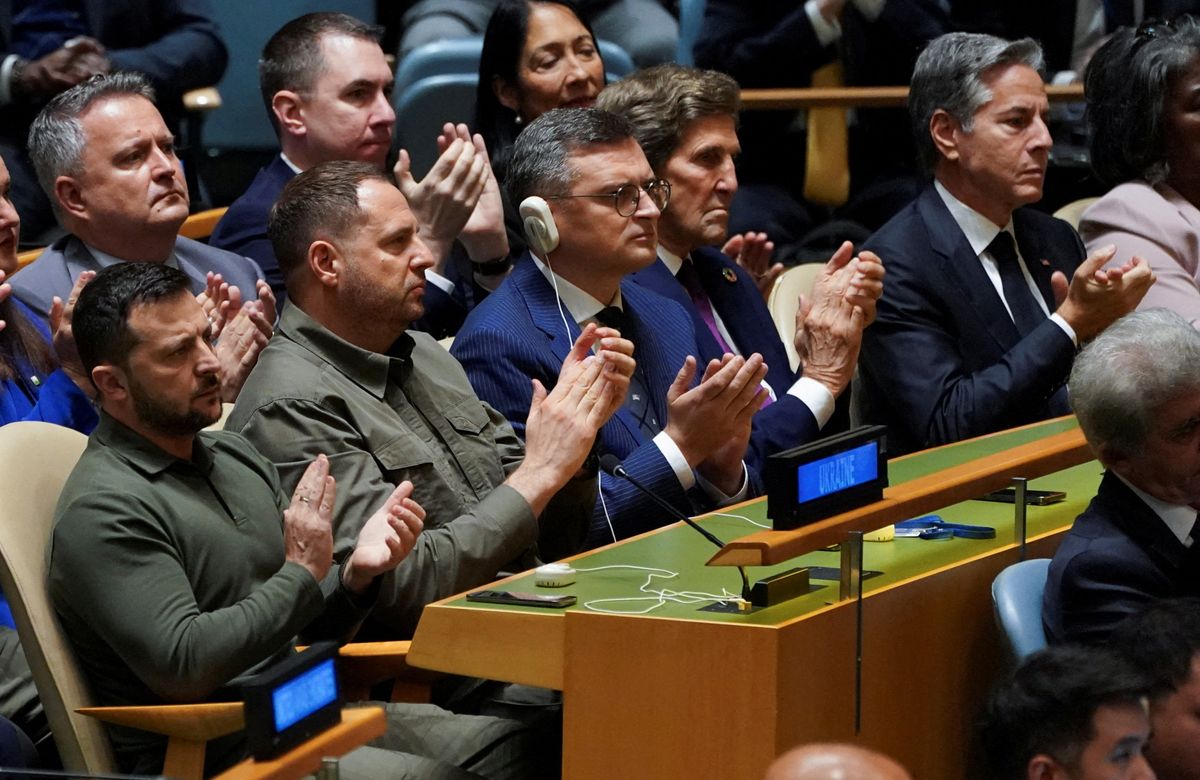The UN General Assembly debate, where world leaders are given time at the podium to outline their respective global priorities, launched with a bang on Tuesday.
US President Joe Biden spoke to a jam-packed auditorium where he reinforced the US commitment to Ukraine. He also addressed China directly, saying that Washington does not seek to decouple from Beijing but rather to derisk, and emphasized that managing the ensuing rivalry responsibility was his administration's priority.
Meanwhile, Brazil's leftist President Luis Inácio Lula da Silva kicked off by declaring that “Brazil is back,” which is also notably how Biden couched his victory after defeating Donald Trump in the 2020 presidential election. Further evoking comparisons with the US, Lula noted that “Brazil is reconnecting with itself, with the region and with the world” – a dig at his far-right predecessor Jair Bolonsonaro who isolated many Western allies.
Moving to focus on the international arena, Lula also took aim at “permanent members” of the UN Security Council for “waging unauthorized wars” – a likely nod to both Russia for its aggression in Ukraine and the United States for successive military interventions. Indeed, this sentiment encapsulates Lula’s attempt to position himself as a champion of the Global South and its collective interests. As Ian Bremmer noted in a recent interview with UN Secretary General Antonio Guterres, Lula has been pushing a message, shared by others, that the war in Ukraine is largely a European problem and the UN should focus on other issues of global concern.
And Brazil is not alone. Other emerging powers – like South Africa and India – have also made clear that they don’t want to choose between the US and Russia, but rather seek constructive relations with both.
It’s precisely this dilemma – that some observers call political pragmatism while others call it bothsidesism – that was the subtext of Ukrainian President Volodymyr Zelensky’s address at the General Assembly.
Wearing his typical olive fatigues, Zelensky seemed more exasperated than at previous global forums – a sign perhaps of his frustration with growing war-weariness, including among allies. The Assembly, it’s worth noting, was also largely empty during his address.
The Ukrainian president will later this week head to Washington amid concerns that Congress might not agree to ratify the White House’s requests to send Kyiv an additional $24 billion in aid. And Kyiv is right to be worried as lawmakers are quite distracted: Republicans are currently wrangling with each other, and with Democrats, on a spending package. If they fail to agree, the subsequent government shutdown would have dire economic consequences.
But Zelensky’s speech took advantage of the global forum. He was mainly pitching to countries in the middle – so-called non-aligned states – that acutely feel the effects of global food disruptions caused by a Russian blockade on Ukrainian ports and Western sanctions on Russian agricultural output. African states, some of which have abstained from previous votes at the UN General Assembly condemning Russia’s aggression in Ukraine, have been particularly hard hit by this supply chain tumult.
On the sidelines of the event, Zelensky met Kenya’s President William Ruto and South Africa’s President Cyril Ramaphosa where, among other things, they discussed the need to resume the now-stalled Black Sea grain deal to ensure global food stability.
Also on the podium on Tuesday was Iran’s President Ebrahim Raisi who will be finding an extra $6 billion in the national bank account upon returning home from New York after finalizing a prisoner swap this week with the US that included the release of frozen Iranian oil revenue.
Raisi’s visit, just after the one-year anniversary of the in-custody death of Mahsa Amini that sparked a national women’s and human rights movement – was not without controversy. A large protest attended by some former and current US lawmakers gathered outside the building, calling for the end to the authoritarian Islamic Republic. Though the demonstration was kept away from the UN headquarters by security barriers, the group’s booming chants could be heard well within the grounds.
What’s on deck for tomorrow?
President Zelensky will attend a UN Security Council dedicated to the war waging in his country. More details to follow.
There are two side-conferences to watch as well. The Climate Ambition Summit is meant to revitalize flagging efforts and dampened spirits in the fight against climate change. UN Secretary-General Guterres highlighted it in his recent interview with Ian Bremmer.
The High-Level Dialogue on Financing for Development will also discuss a major factor in climate action, bringing together heads of state and multilateral lenders. The conference aims to untangle some of the financial hurdles toward achieving the Sustainable Development Goals by 2030.

















